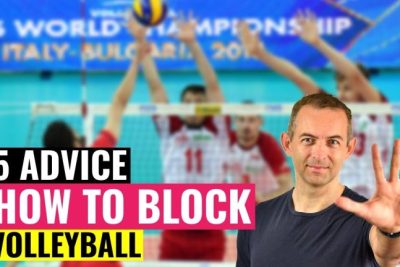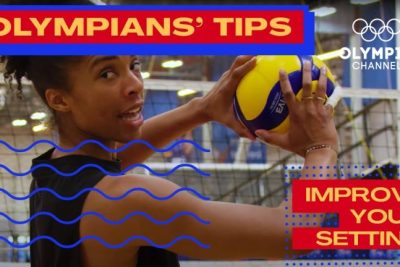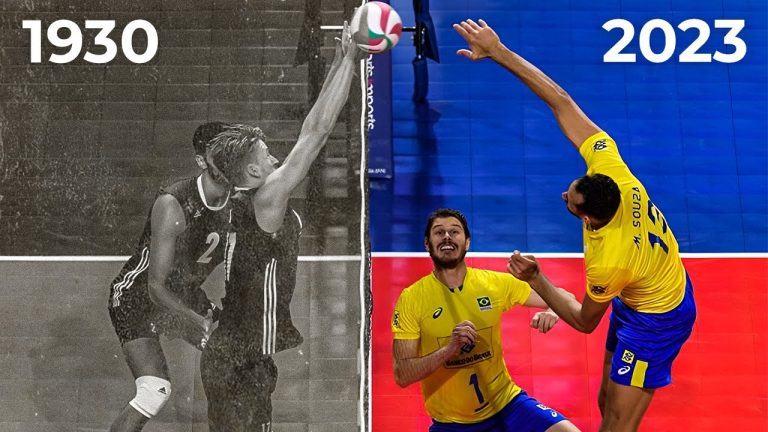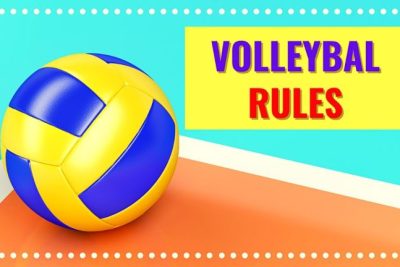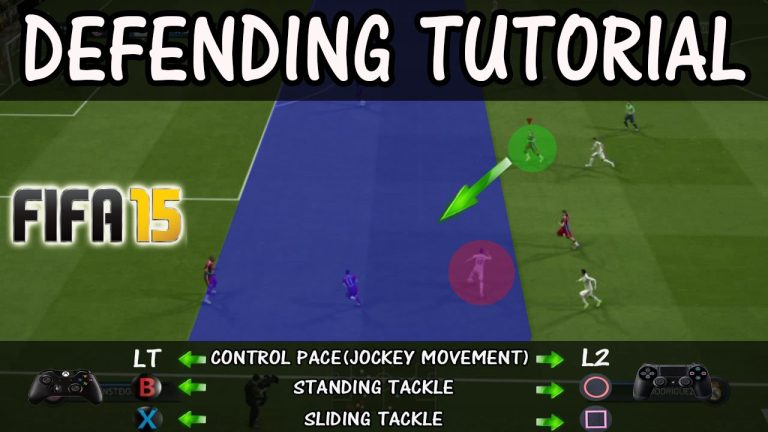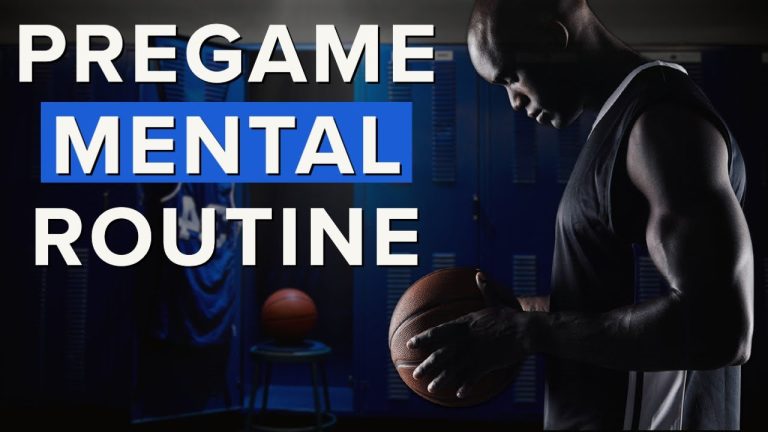
Effective communication is a cornerstone for success in any team sport, and volleyball is no exception. As a volleyball captain, the ability to effectively convey ideas, strategies, and motivation to your teammates is crucial for achieving victory on the court. In this article, we will explore the essential skills and techniques that every volleyball captain should possess to ensure clear and concise communication, fostering a cohesive and winning team environment. Whether it’s directing plays, offering constructive feedback, or inspiring teammates during tense moments, mastering the art of communication will elevate your leadership and propel your team to greatness.
Advantages
- Improved team coordination: Effective communication allows volleyball captains to convey their strategies, tactics, and instructions clearly to their teammates. This leads to better coordination on the court, ensuring that each player understands their role and responsibilities, resulting in a more synchronized and efficient performance.
- Enhanced motivation and morale: Captains who can effectively communicate with their team can inspire and motivate their teammates. By delivering encouraging messages, providing constructive feedback, and recognizing individual and team achievements, captains can boost morale and create a positive team atmosphere. This fosters a sense of unity and cooperation, leading to increased motivation and improved performance.
- Stronger leadership skills: Effective communication is an essential component of effective leadership. Volleyball captains who can communicate their vision, objectives, and expectations clearly are better equipped to lead their team. By demonstrating strong communication skills, captains can earn the trust and respect of their teammates, making it easier for them to influence and guide the team towards success.
- Effective problem-solving: In the midst of a volleyball game, captains often need to make quick decisions and solve problems on the spot. By being able to communicate effectively, captains can gather input from their teammates, consider different perspectives, and make well-informed decisions. This allows them to adapt to changing game situations, strategize effectively, and find solutions to challenges, ultimately increasing the team’s chances of winning.
Disadvantages
- Time Constraints: Effective communication requires time and effort, which can be a challenge for volleyball captains who already have a busy schedule. Captains often have to balance their own training, team practice, competitions, and other responsibilities, leaving them with limited time to dedicate to communication. This can lead to rushed or incomplete messages, resulting in confusion or misinterpretation among team members.
- Language Barriers: In diverse teams or international competitions, language barriers can hinder effective communication for volleyball captains. Captains may struggle to convey their messages accurately or understand the needs and concerns of players who speak different languages. This can lead to misunderstandings, breakdowns in teamwork, and ultimately affect the overall performance of the team. Captains may need to rely on translators or find alternative communication methods to overcome these language barriers.
What is the significance of communication for a sports leader?
In the realm of sports leadership, effective communication plays a pivotal role. Research substantiates that fostering strong communication channels between coaches and players leads to the formation of superior and more efficient teams. Moreover, it has been widely acknowledged that open and transparent communication, both within the team and with the public, is crucial for establishing prosperous business environments. By prioritizing communication, sports leaders can enhance team dynamics and create a solid foundation for success.
Effective communication is an essential attribute for sports leaders as it directly impacts team cohesion and performance. Studies have consistently revealed that establishing good communication between coaches and players cultivates a more harmonious and productive team dynamic. Furthermore, in the context of sports as a business, effective communication is vital for creating a successful organizational environment. By fostering open lines of communication, sports leaders can ensure that everyone is on the same page and working towards a common goal, ultimately leading to improved team performance and overall success.
What is the importance of communication as a setter in volleyball?
Effective communication is crucial for setters in volleyball. Without clear and constant communication, the team’s performance can suffer greatly. As former AVP player, Michael Brunsting highlights, the lack of communication can result in quick turnovers and momentum-killing plays. Volleyball is a sport that heavily relies on momentum, and to truly excel, the team must operate like a well-oiled machine, with each player understanding their role and working together seamlessly. Therefore, as a setter, it is essential to communicate efficiently to ensure smooth coordination and maximize the team’s potential.
In addition to preventing turnovers, effective communication as a setter in volleyball is vital for establishing strong team dynamics. By communicating clearly and consistently, the setter can build trust and understanding with their teammates. This fosters a sense of unity and cohesion within the team, allowing for better coordination and execution of plays. As the conductor of the team’s offense, the setter relies on effective communication to convey their intentions and strategies to their teammates. By doing so, they create an environment where everyone is on the same page, leading to improved performance and increased chances of success on the volleyball court.
What is the importance of communication and teamwork in volleyball?
Effective communication and teamwork are crucial elements in the game of volleyball. When players work together cohesively, their performance on the court improves significantly, enhancing their chances of winning the match. By collaborating and coordinating their efforts, volleyball players are able to overcome any obstacles that come their way. Furthermore, teamwork fosters a supportive environment where athletes can thrive and achieve success. It is therefore imperative for all volleyball players to prioritize and actively work on developing their teamwork skills.
Unlocking the Power of Persuasion: The Key to Volleyball Captaincy
Unlocking the Power of Persuasion: The Key to Volleyball Captaincy
In the realm of volleyball captaincy, the power of persuasion unlocks a world of possibilities. As the leader of a team, a captain must not only possess exceptional skills on the court but also possess the ability to inspire, motivate, and guide their teammates towards a common goal. Their words hold weight, their actions set the standard, and through their persuasive influence, they foster an environment of unity, determination, and excellence. By mastering the art of persuasion, a volleyball captain becomes the catalyst for success, cultivating a team that is not only technically proficient but also harmoniously connected, propelling them towards victory.
From Words to Actions: Communicating with Impact on the Volleyball Court
From Words to Actions: Communicating with Impact on the Volleyball Court
Effective communication is the backbone of any successful volleyball team. It is not just about talking, but rather about conveying messages that have a profound impact on the court. Players who can effectively communicate their intentions, strategies, and support to their teammates are more likely to achieve their goals. Whether it’s a quick call for a set or a motivational shout during a rally, concise and clear communication can make the difference between a missed opportunity and a game-changing play. By mastering the art of communication, volleyball players can elevate their performance and create a stronger, more cohesive team.
In the fast-paced world of volleyball, actions speak louder than words. While verbal communication is crucial, it is equally important to back it up with actions that demonstrate commitment and precision. A well-timed dive to save a ball, an explosive spike, or a perfectly placed block can communicate determination, skill, and teamwork more effectively than any words ever could. Actions on the volleyball court have the power to inspire teammates, intimidate opponents, and energize the entire team. By aligning their words and actions, volleyball players can create a dynamic and impactful presence on the court that can lead to victory.
Building Trust and Unity: The Art of Effective Communication for Volleyball Captains
As volleyball captains, effective communication is the key to building trust and unity within our team. By mastering this art, we can create a strong foundation that fosters cooperation and success on the court. Clear and concise communication ensures that everyone is on the same page, enabling us to execute strategies flawlessly and make split-second decisions as a cohesive unit. Whether it’s directing teammates during a play or providing constructive feedback during practice, our ability to communicate effectively will not only inspire confidence but also enhance our team’s overall performance.
In addition to clear communication, building trust among teammates is paramount for a volleyball captain. Trust is the glue that holds a team together, enabling us to rely on each other’s abilities and work towards a common goal. By fostering an open and inclusive environment, where everyone’s contributions are valued, we can establish trust within our team. This means actively listening to our teammates, being receptive to their ideas, and treating each other with respect. When trust is present, our team becomes a united force, capable of overcoming challenges and achieving extraordinary results on and off the volleyball court.
Mastering the Art of Motivation: Inspiring Your Team through Effective Communication
Mastering the Art of Motivation: Inspiring Your Team through Effective Communication
Paragraph 1:
Effective communication is the key to unlocking the potential of your team. By mastering the art of motivation, you can create an environment where individuals feel inspired to give their best. Communication is not just about conveying information; it is about connecting with your team on a deeper level. By understanding their needs and providing clear direction, you can foster a sense of purpose and drive that will propel your team towards success.
Paragraph 2:
Motivation is a powerful tool that can transform a group of individuals into a high-performing team. As a leader, it is your responsibility to inspire and engage your team members. Through effective communication, you can tap into their intrinsic motivations and align their goals with the larger objectives of the organization. By regularly providing feedback, recognizing achievements, and offering opportunities for growth, you can create a sense of belonging and empowerment that fuels their motivation to excel.
Paragraph 3:
In today’s fast-paced and competitive business world, the ability to motivate your team is more crucial than ever. Effective communication acts as a catalyst for motivation, helping you to build trust, foster collaboration, and inspire innovation. By creating an open and transparent communication culture, you can ensure that everyone’s voice is heard and valued. This not only boosts morale but also encourages creativity and problem-solving, leading to a more motivated and productive team. Remember, mastering the art of motivation begins with mastering the art of communication.
In order to effectively lead a volleyball team, captains must prioritize clear and concise communication. By fostering an environment of open dialogue, actively listening to teammates, and providing constructive feedback, captains can ensure that their team operates smoothly and efficiently. Effective communication not only enhances on-court performance but also strengthens team unity, fostering a positive and cohesive atmosphere. Ultimately, it is through effective communication that volleyball captains can inspire their teammates, drive success, and lead their team to victory.
